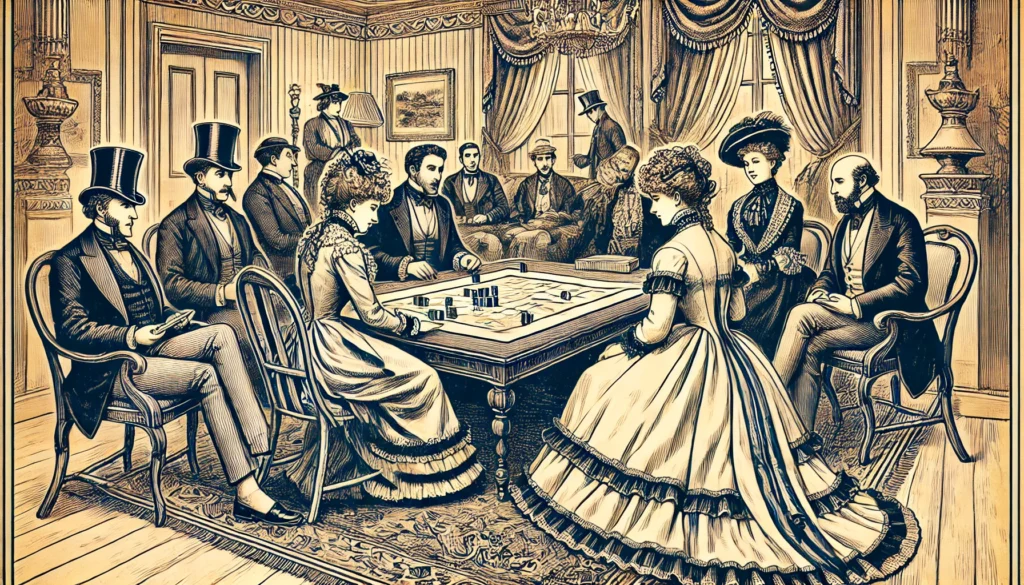
Introduction
The 21 Questions Game is a timeless classic, perfect for getting to know someone better, breaking the ice at social gatherings, or simply having fun. In this guide, we will explore the origins, rules, and benefits of the game, along with the best questions to ask and tips for a successful experience.

History and Origin
The 21 Questions Game has its roots in traditional parlor games that were popular during social gatherings in the 19th century. These games evolved to become a staple in many cultures, valued for their simplicity and ability to foster connection.

How to Play the 21 Questions Game
Playing the 21 Questions Game is straightforward. Here’s a step-by-step guide:
- Choose a Player: Decide who will answer the questions first.
- Ask Questions: One person asks 21 questions, and the other answers honestly.
- Take Turns: After 21 questions, switch roles or move to the next player.
- Variations: Try different themes or a round-robin format to keep things interesting.
Why Play the 21 Questions Game?
There are numerous benefits to playing this game:
- Building Relationships: Helps in getting to know people better.
- Breaking the Ice: Ideal for easing tension in new social settings.
- Entertainment: Provides a fun and engaging activity for groups.

Sample Questions to Ask
Here are some categories of questions to keep your game varied and interesting:
Classic Questions
- What’s your favorite book and why?
- If you could travel anywhere in the world, where would you go?
Fun and Quirky Questions
- If you were an animal, which one would you be and why?
- What’s the weirdest food you’ve ever tried?
Deep and Meaningful Questions
- What’s one thing you regret not doing in the last five years?
- What do you think is the purpose of life?

Strategies for a Successful Game
To ensure a successful game, consider these tips:
- Choose the Right Questions: Tailor your questions to your audience.
- Create a Comfortable Environment: Ensure everyone feels safe to share.
- Keep it Fun: Avoid sensitive topics to maintain a light-hearted atmosphere.
Common Mistakes to Avoid
Avoid these common pitfalls:
- Overly Personal Questions: Respect boundaries.
- Ignoring Reactions: Pay attention to body language and adjust accordingly.
- Losing Focus: Keep the game engaging and on track.
Adapting the Game for Different Settings
The 21 Questions Game can be adapted for various environments:
- Friends vs. Strangers: Use more general questions for strangers.
- Parties and Gatherings: Keep questions light and fun.
- Virtual Play: Utilize video calls or messaging apps for remote play.

Real-Life Examples and Anecdotes
Many people have shared how the 21 Questions Game has impacted their lives:
- Friendships: Some have formed lasting friendships through the game.
- Relationships: Couples have used the game to deepen their connection.
- Family Bonds: Families have discovered new things about each other.
Conclusion and 10 FAQs
The 21 Questions Game is a fantastic way to engage with others, whether you’re looking to break the ice or deepen existing relationships. By incorporating thoughtful questions and maintaining a fun, light-hearted atmosphere, you can ensure a memorable experience for all participants. Give it a try and see how much you can learn about your friends, family, or even new acquaintances.
FAQs
- What is the 21 Questions Game?
The 21 Questions Game is a social activity where one person asks another a series of 21 questions to get to know them better.
- How do you play the 21 Questions Game?
One person asks 21 questions, and the other answers honestly. Participants can take turns asking and answering questions.
- What are some good questions to ask?
Good questions include: “What’s your favorite book?”, “If you could travel anywhere, where would you go?”, and “What’s one thing you regret not doing in the last five years?”
- Can the game be played in a group?
Yes, the game can be adapted for group settings where participants take turns asking and answering questions.
- Is it suitable for all ages?
The game can be tailored for different age groups by adjusting the complexity and appropriateness of the questions.
- What are the benefits of playing this game?
Benefits include breaking the ice, deepening relationships, and providing entertainment.
- Can the game be played virtually?
Yes, the game can be played over video calls or messaging apps, making it versatile for remote interactions.
- What should be avoided during the game?
Avoid overly personal or sensitive questions that might make participants uncomfortable.
- How can the game be made more fun?
Introduce themes, keep questions light-hearted, and ensure a comfortable environment for everyone.
- Where can I find more question ideas?
Websites like Cosmopolitan and Psychology Today offer extensive lists of questions and tips for enhancing the game.







